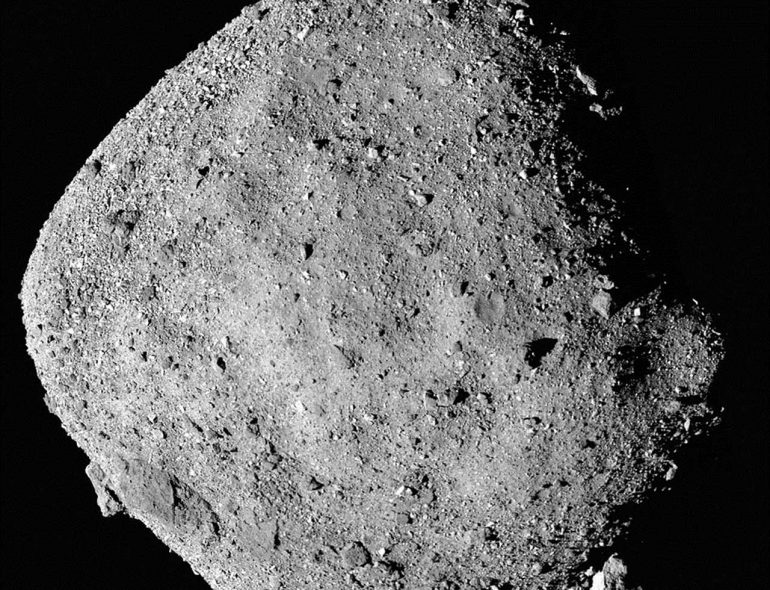One of the more exciting things that NASA has done in recent memory is landing a probe on the surface of asteroid Bennu. OSIRIS-REx successfully touched down briefly on the asteroid’s surface and gobbled up a bunch of samples that will be returned to earth for study. After orbiting the asteroid for a couple of years, some new data has now been published that sheds more light on the asteroid’s composition.
Researchers from the University of Colorado announced findings based on data captured by the spacecraft in the two years it was in orbit that shows the asteroid is likely hollow. Department of aerospace engineering sciences Daniel Scheeres said it appears the void in the asteroid center could hold a couple of football fields.
Since the core of the asteroid appears to be weaker than the exterior, the asteroid’s survival over the long-term could be at risk. Scheeres says that in a million years or less, the entire asteroid could fly apart. By combining data recorded by OSIRIS-REx, the scientists could create a map of sorts of the gravity of the asteroid, suggesting that assumptions the inside was solid and rocky were wrong.
The team believes that the asteroid’s rotation could be responsible for the void inside. Over time, Bennu’s rotation is gaining speed, and they think it’s in the process of spinning itself into pieces. Since the core is low density, it’s easier for the entire asteroid to fall apart as it spins. Now that measurements of the gravity field of the asteroid over, the team of scientists have wrapped up their work on the OSIRIS-REx mission.
The results of their work have contributed to the plan to analyze samples that will be returned to earth by the spacecraft. The current plan will see the samples analyzed to determine the cohesion between grains, a key physical property that impacts the mass distribution observed in the study.

Devoted web advocate. Bacon scholar. Internet lover. Passionate twitteraholic. Unable to type with boxing gloves on. Lifelong beer fanatic.





